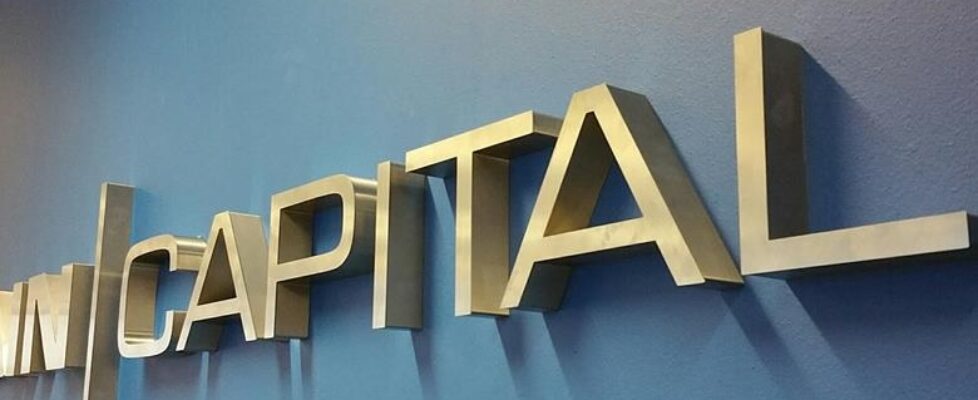GAIN Capital seeks to preclude OANDA from using new infringement theories in patent lawsuit
The patent infringement lawsuit brought by OANDA against GAIN Capital continues at the New Jersey District Court. In a recent Court filing, GAIN moves to preclude OANDA from relying on any theories of infringement that have not been disclosed in OANDA’s July 20, 2021 Infringement Contentions relying on source code or technical documents produced to date or any theories that could have been raised based on such discovery because OANDA has failed to timely make the required disclosures under Local Patent Rule 3.1.
Let’s recall that in this lawsuit OANDA alleges that GAIN infringes two patents, U.S. Patent Nos. 7,146,336 (“the ’366 patent”) and 8,392,311 (“the ’311 patent”).
On March 5, 2013, the United States Patent and Trademark Office issued United States Patent No. 8,392,311, entitled “Currency Trading System, Methods, and Software.” The ’311 Patent teaches, among other things:
In one aspect, the present invention comprises a system for trading currencies over a computer network. A preferred embodiment comprises: (a) a server front-end; (b) at least one database; (c) a transaction server; (d) a rate server; (e) a pricing engine; (f) an interest rate manager; (g) a trade manager; (h) a value at risk server; (i) a margin control manager; (j) a trading system monitor; and (k) a hedging engine. In another aspect, the present invention comprises methods for trading currency over a computer network. In another aspect, the present invention comprises software for currency trading over a computer network.
On December 5, 2006, the United States Patent and Trademark Office duly and legally issued United States Patent No. 7,146,336, entitled “Currency Trading System, Methods, and Software.”
The ʼ336 Patent teaches, among other things:
In one aspect, the present invention comprises a system for trading currencies over a computer network. A preferred embodiment comprises: (a) a server front-end; (b) at least one database; (c) a transaction server; (d) a rate server; (e) a pricing engine; (f) an interest rate manager; (g) a trade manager; (h) a value at risk server; (i) a margin control manager; (j) a trading system monitor; and (k) a hedging engine. In another aspect, the present invention comprises methods for trading currency over a computer network. In another aspect, the present invention comprises software for currency trading over a computer network.
In its latest Court filing, GAIN says OANDA should not be permitted to rely on any theories of infringement that were not disclosed in OANDA’s July 20, 2021 Infringement Contentions because to do so would be prejudicial to GAIN.
OANDA, according to GAIN, has had ample opportunity to provide the required disclosures. Any amendment at this time or later would be untimely and no longer “preliminary.” The case is no longer in its early stages.
It has now been nearly 15 months since OANDA’s infringement contentions were due and over a year since GAIN produced its source code and technical documents. In that time, the parties negotiated 23 claim terms and settled on the 7 terms to brief without those required infringement contentions.
Claim construction briefing has been completed and the Court has held oral argument. Yet Plaintiff has not sought to amend its contentions to include the new theories and references. Any new theories should be precluded for this reason alone, GAIN argues.
GAIN argues that “OANDA should likewise not be permitted to benefit from its own lack of diligence. To date, because OANDA has failed to comply with this Court’s Rules and its claims defined and limited by a proper disclosure of its infringement contentions, it has pursued broad, unbounded discovery on GAIN’s entire system”.
For example, OANDA continues to define “ACCUSED PRODUCTS” broadly as, inter alia, “Anything offered via the website forex.com, regardless of whether that thing is characterized by GAIN as a product, service, platform, offering, app, user interface, educational or informational material(s).”
In response to OANDA’s discovery requests, GAIN has identified the individual products and services available on its website forex.com, along with the time period during which they were made available. Yet OANDA still has failed to confirm whether each or any of those identified products/services are “accused instrumentalities” under Local Patent Rule 3.1(b).
GAIN says that because OANDA has had the information needed to provide complete Local Patent Rule 3.1 disclosures for at least a year, “OANDA has no excuse for its lack of diligence”.
At a minimum, GAIN argues, OANDA has violated the spirit of the Local Patent Rules’ early disclosure requirements and should not be permitted to freely and without any constraints conduct the rest of discovery, and then expert discovery, with the ability to shift its positions at a whim because it has no real contentions to live by, while keeping GAIN in the dark about what is accused of infringement and why.
GAIN concludes that the Court should grant GAIN’s motion to preclude OANDA from relying on any theories of infringement that have not been disclosed in OANDA’s July 20, 2021 Infringement Contentions relying on source code or technical documents produced to date or any theories that could have been raised based on such discovery because OANDA has failed to timely make the required disclosures under Local Patent Rule 3.1.






